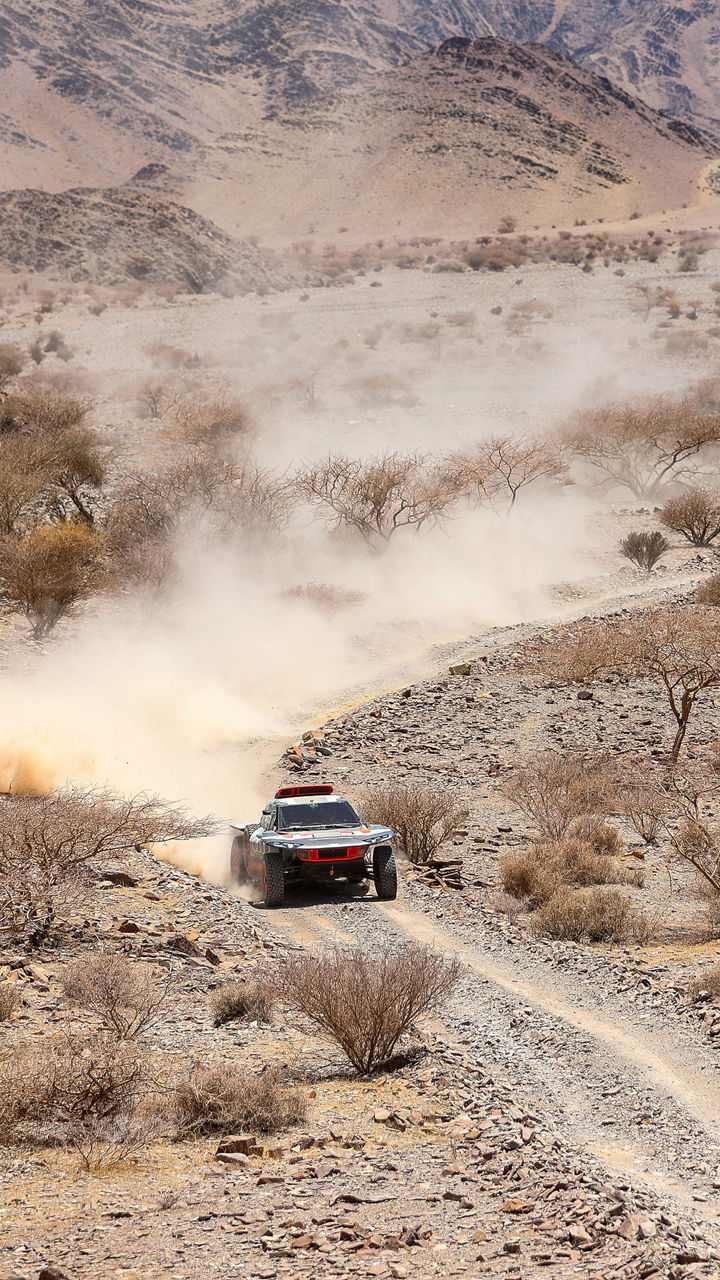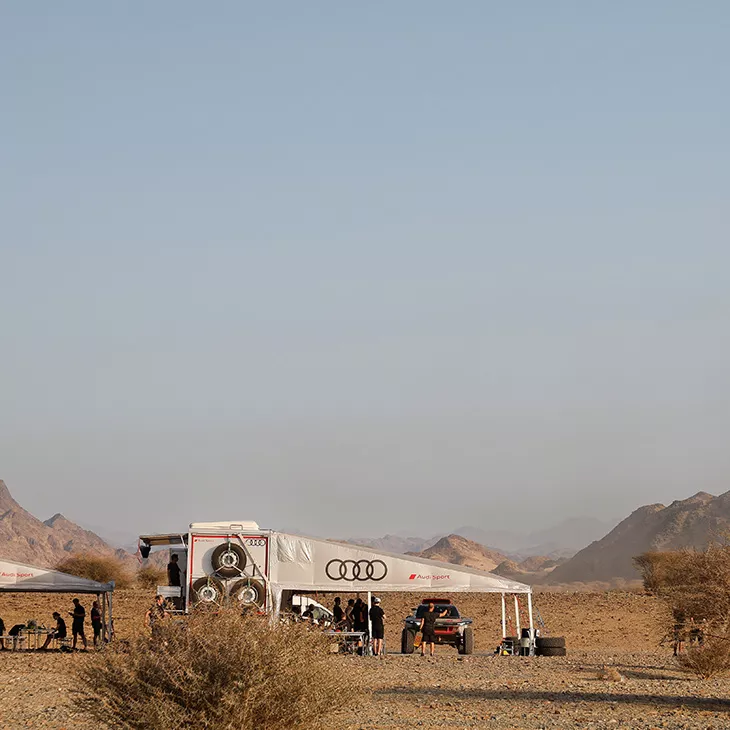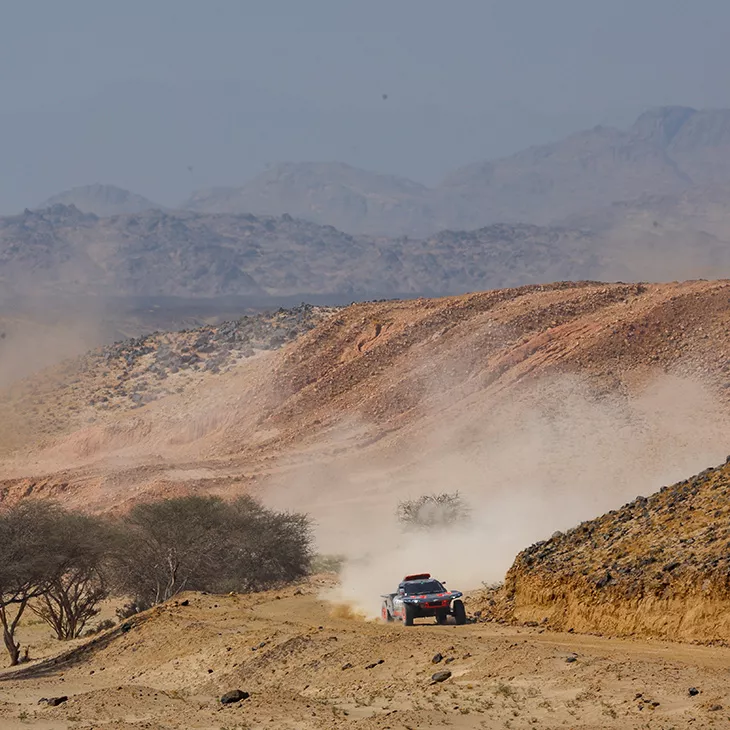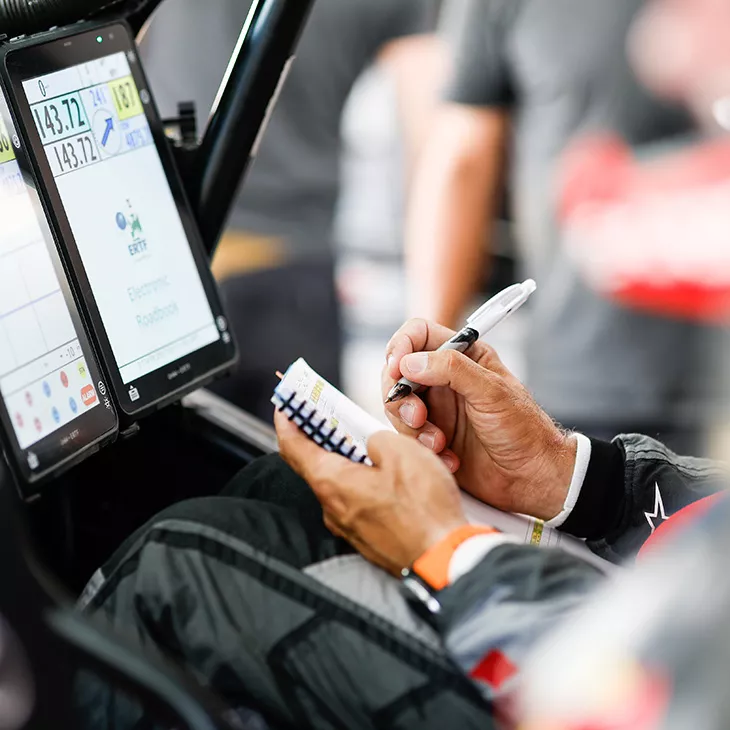
Consistent root cause analysis at Audi Sport’s Dakar test
• Search for causes and remedies for blown tires
• At the same time chassis testing on different terrain
• All three drivers and two co-drivers in action during the test
Team Audi Sport has prepared an analytical test for the suspension and tires after the 2023 Dakar Rally. The Audi RS Q e-tron ’s record in January included a total of 14 podium results on 15 event days but also various setbacks. While the innovative electric drive concept worked flawlessly, tire failures clearly set back the three driver teams Mattias Ekström/Emil Bergkvist, Stéphane Peterhansel/Edouard Boulanger and Carlos Sainz/Lucas Cruz in the most important competition of the year. In addition to the analysis carried out since January, the team completed its investigation of the causes in May with a test in Saudi Arabia.
Using two different types of tires from BF Goodrich, the official tire supplier of the Dakar Rally, the team compared the performance and attempted to recreate the conditions of January’s damage in order to develop countermeasures. Various tracks were available for this purpose: On a sprint track of just under 13 kilometers with gravel and sand, the engineers examined performance aspects. Over a distance of around 110 kilometers on a stony course, the focus was on durability and damage patterns. Also on the agenda was work with the shock absorbers, as the chassis has to behave reliably but also consistently and efficiently on the rough surfaces. Measurement sensors in the chassis for loads and accelerations supported this analysis.


